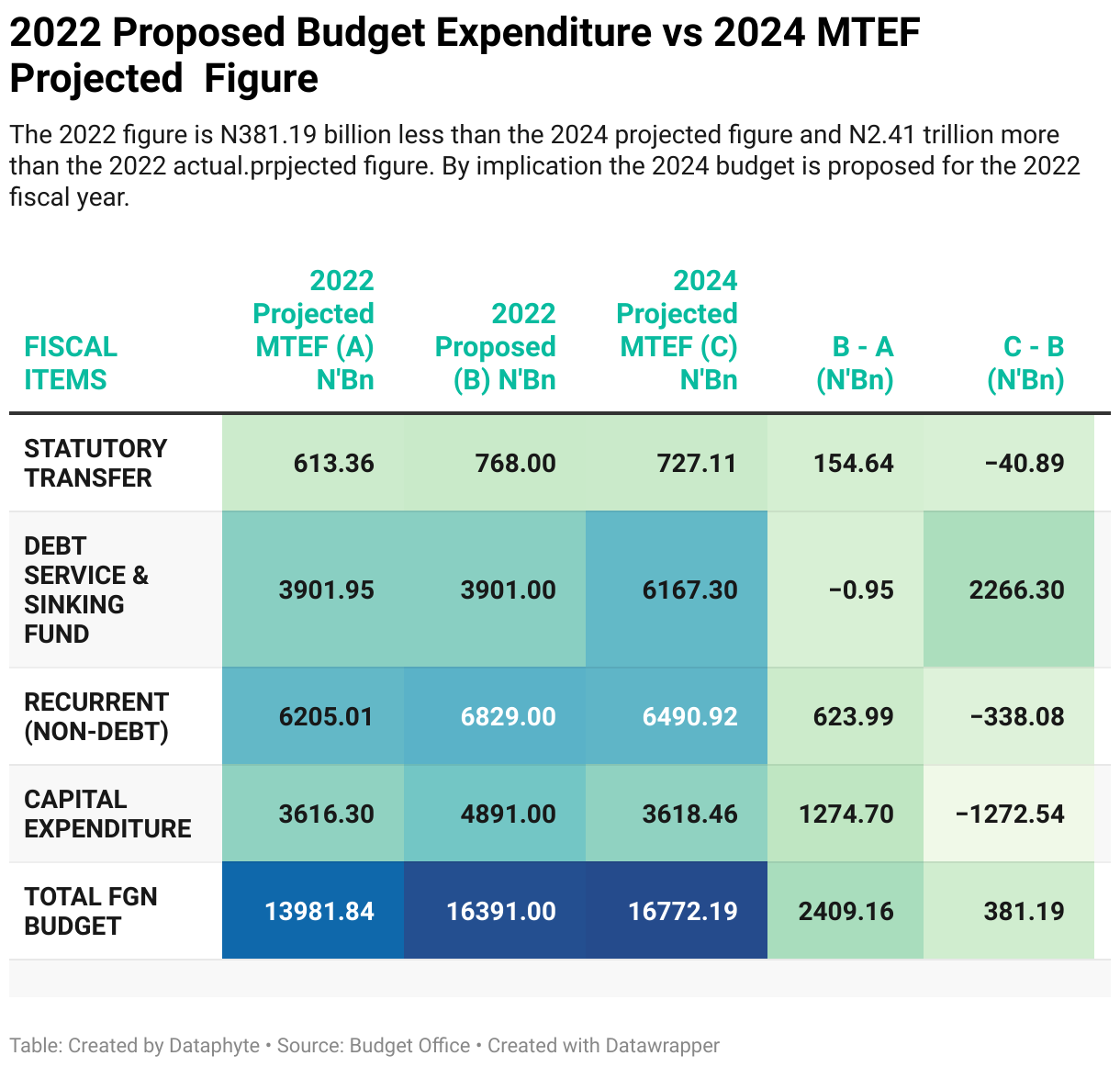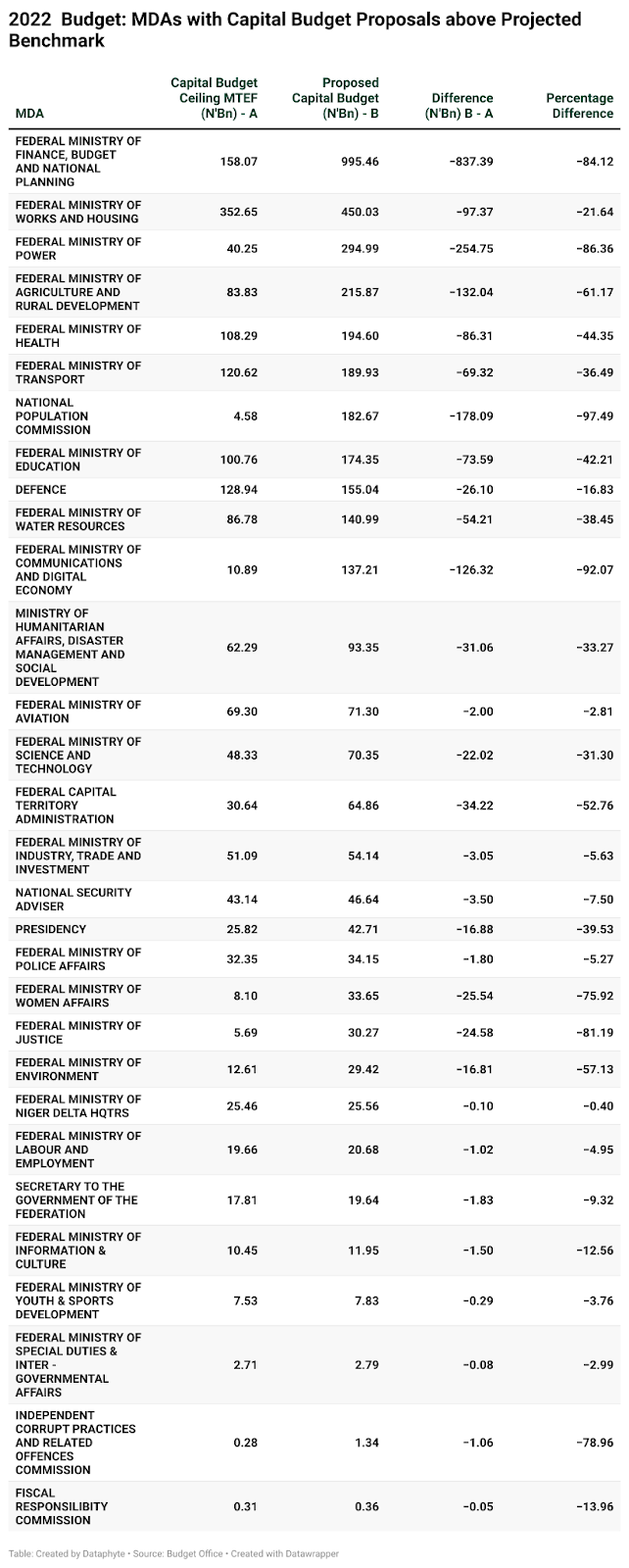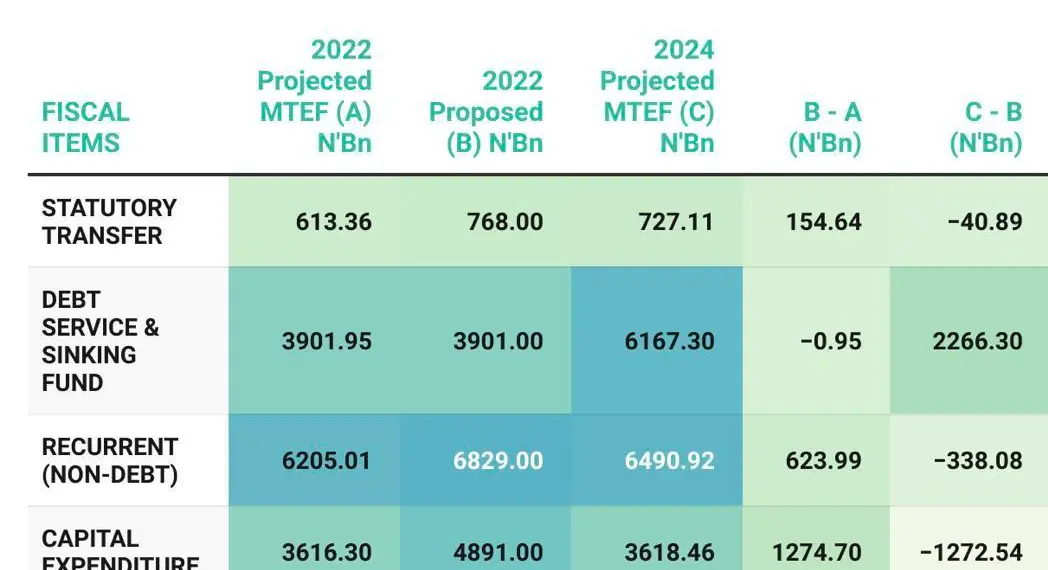The proposed 2022 budget figure of N16.39 trillion is N2.41 trillion more than the projected budget for the 2022 fiscal year. And it is only N381.19 billion less than the projected aggregate budget expenditure of the 2024 fiscal year of N16.77 trillion.
These projections were made in the Medium Term Expenditure Framework and Fiscal Strategic Paper (MTEF/FSP). This document provides a guide for the country’s fiscal issues.
“It is designed to facilitate several important outcomes: greater macroeconomic balance; improved allocative efficiency – inter and intra-sectoral resource allocation; greater budgetary predictability for line ministries; and more efficient use of public funds.
Integrating the top-down resource envelope projection with the bottom-up sectoral program expenditure estimation ensures that the policy-making, planning, and budgeting processes are linked and developed into a body of consistent goals to be achieved within a three-year period.”
Thus, the document provides benchmark projections for annual fiscal forecasts for three years.
However, despite the budget office releasing a circular call for budgeting expenditures by MDAs in line with the MTEF, the total aggregate expenditure exceeded the projected figure for the forthcoming fiscal year.
The MTEF projected planned expenditure for recurrent (non-debt) expenditure for 2022 was N6.21 trillion. But the proposed budget submitted for approval has a recurrent expenditure of N6.83 trillion. This shows that the 2022 recurrent budget is 10.1% more than the 2022 MTEF projections and 5.21% more than 2024.
Capital expenditure projected for 2022 and 2024 in the MTEF was N3.616 trillion and N3.618 trillion, respectively. The proposed expenditure had a capital expenditure of N4.89 trillion. This is N1.274 trillion (35.25%) more than 2022 projected and N1.272 trillion (35.17%) excess of 2024.

Statutory transfer for 2022 proposed expenditure of N768 billion is N154.64 billion more than 2022 projected and N40.89 billion above 2024 projected. The proposed figure is 25.2% more than 2022 projected and 5.6% more than that of 2024.
However, the debt servicing proposed figure is less than the 2024 projected figure, although it’s more than that proposed for 2022.
Where Increases in Capital Expenditure Came From
30 MDAs championed the 35.25% increase in the 2022 proposed capital expenditure figure. These MDAs collectively accounted for N2.112 trillion add-on to the projected amount.
The top 10 with these increases are Ministries of Finance, Works, Power, Agriculture, and Health. Others are Ministries of Transport, Population, Education, Defence, and Water Resources.
Generally, an increase in capital expenditure is a welcome idea as it should transcend into providing capital goods to facilitate development.
However, among the top 10 MDAs that accounted for these increases, just 6 provide social infrastructure. Specifically, the ministry with the highest increase, the Ministry of Finance, Budget, and National Planning, is not a social infrastructure-providing ministry.
Thus most of these capital increases will go into administrative capital for the ministries with little or no impact on the economy.

Although some MDAs increased the capital expenditure budget, a few others proposed figures below the benchmark given to them. In all, four MDAs made capital expenditure proposals below the projected benchmark for their MDAs, Which resulted in an N1.62 billion reduction in capital expenditure. These MDAs are the Office of the Head of Service, Ministry of Mines and Steel Development, Ministry of Foreign Affairs, and Ministry of Interior.
The remaining ten MDAs made the capital budget proposal equal to the benchmark given to them. They include the Office of the Auditor-General, Infrastructure Concession Regulatory Commission, Ministry of Petroleum Resources, National Salaries and Wages Commission, and Code of Conduct Bureau, among others.
Although the MTEF document provides a framework for budget expenditure, it did not provide a benchmark for MDAs on recurrent spending and statutory transfers as it did for capital expenditure. Thus, these MDAs don’t have a guiding figure on which to make their proposals.




